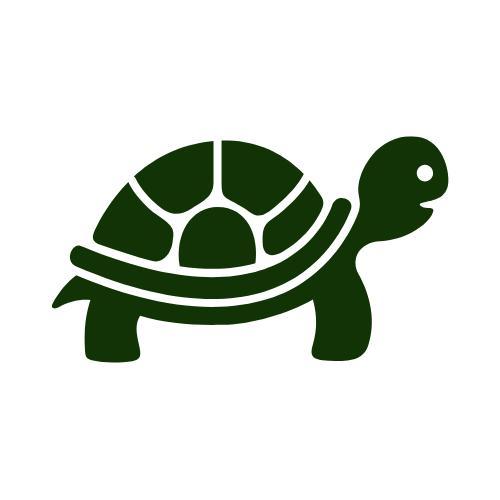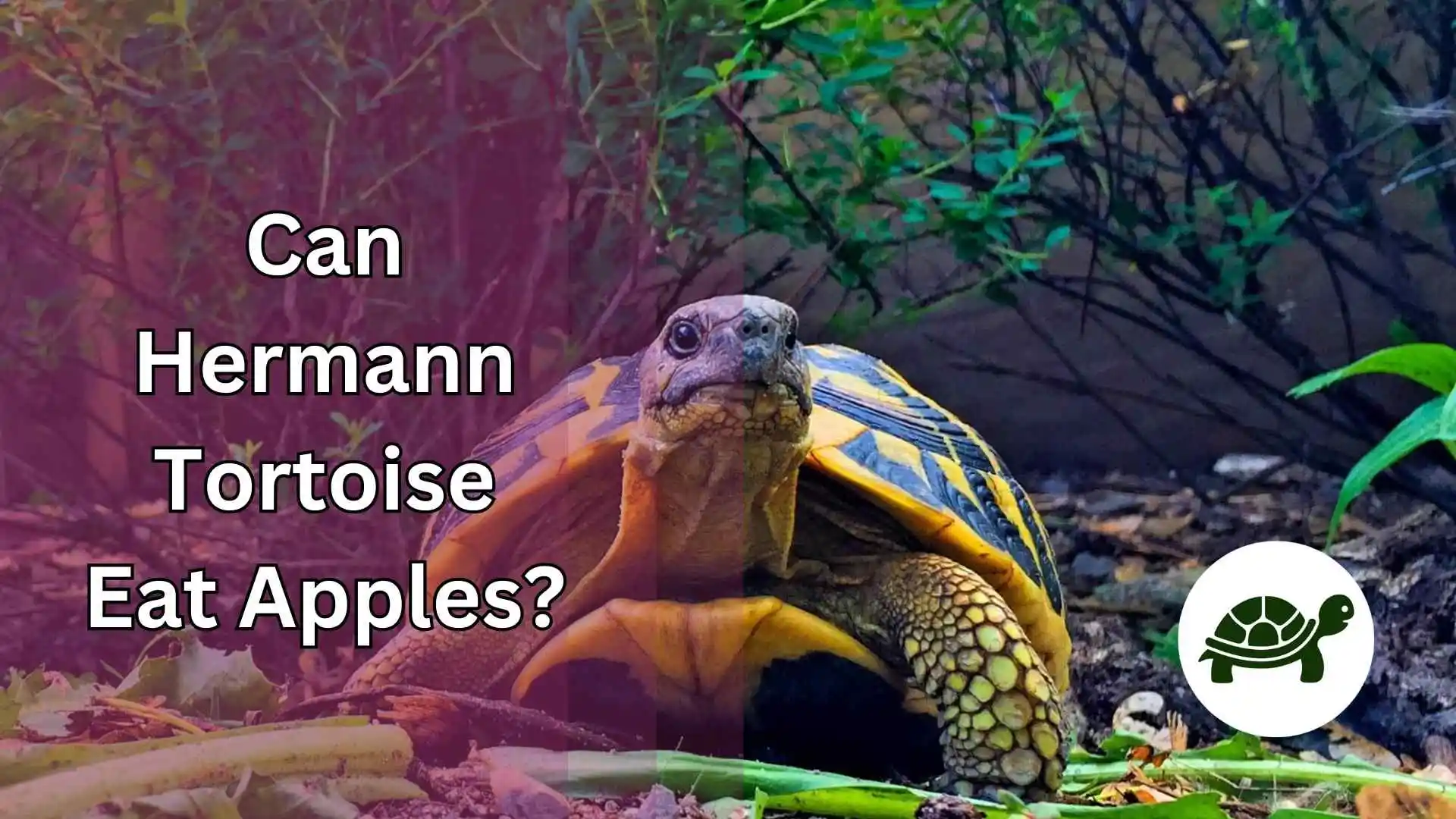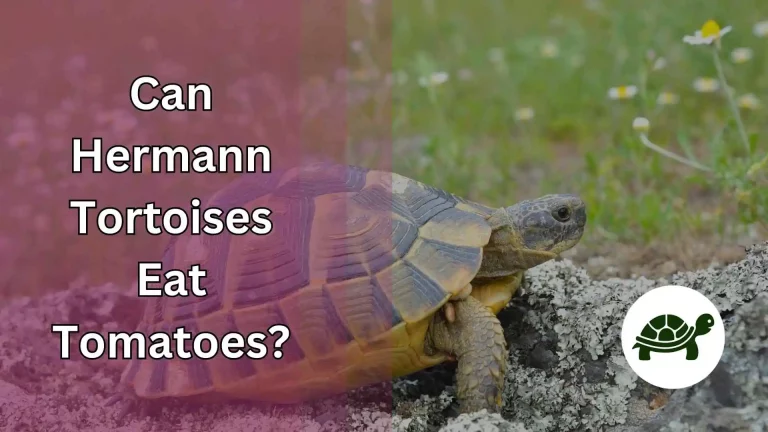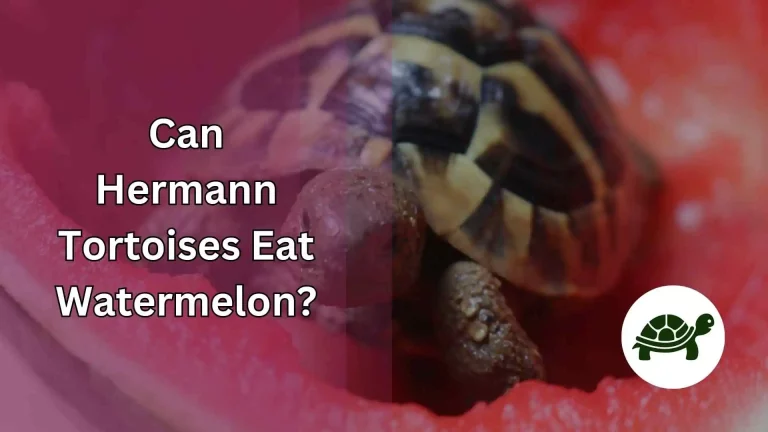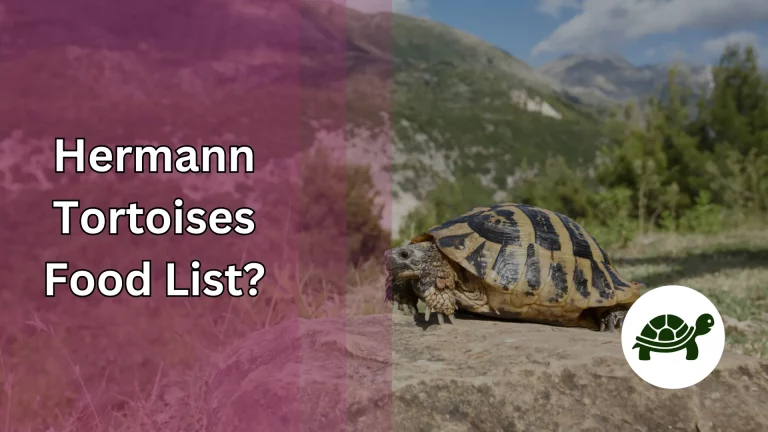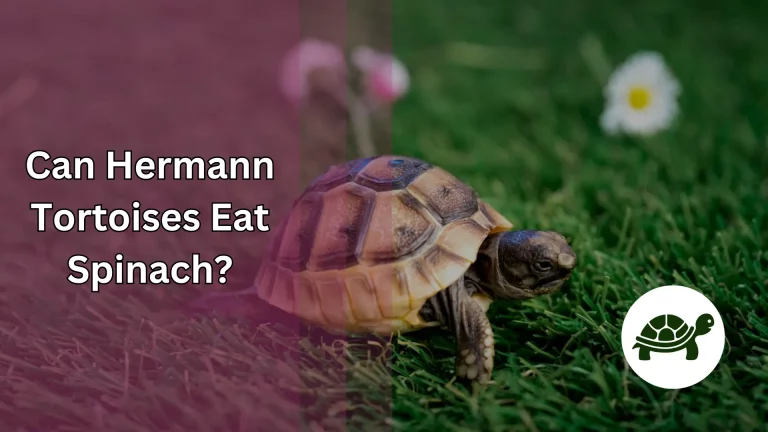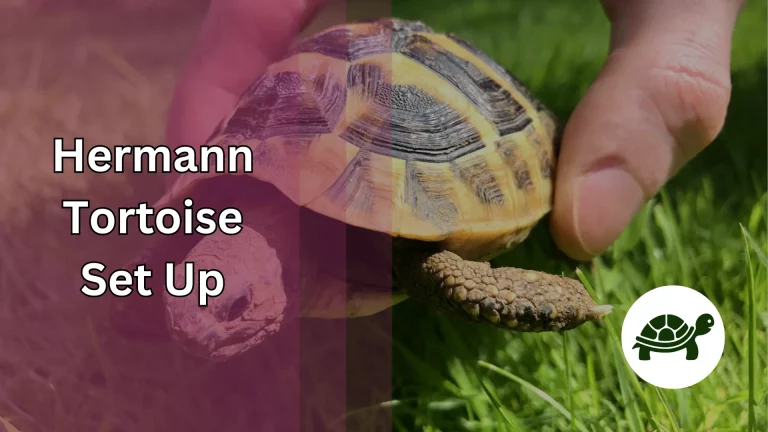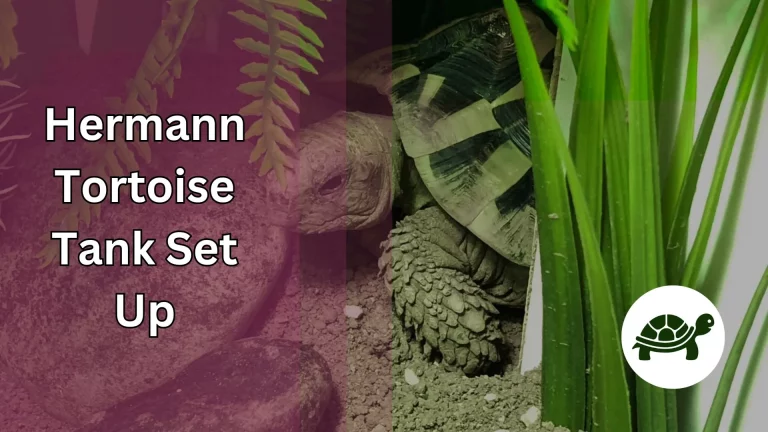Can Hermann Tortoise Eat Apples? – An Ultimate Guide
Have you ever found yourself holding a juicy apple and wondered, “Can my Hermann tortoise enjoy this treat as much as I do?” You’re not alone! Many Hermann tortoise owners are keen to diversify their pet’s diet but are unsure about which foods are safe and beneficial. This blog post aims to provide a comprehensive answer to the frequently asked question: “Can Hermann tortoises eat apples?”
Diet is a critical factor in the overall health and longevity of Hermann tortoises. A well-balanced diet ensures that your pet gets all the necessary nutrients, while the wrong foods can lead to health problems. That’s why it’s essential to be informed and cautious when introducing new foods to your tortoise’s menu.
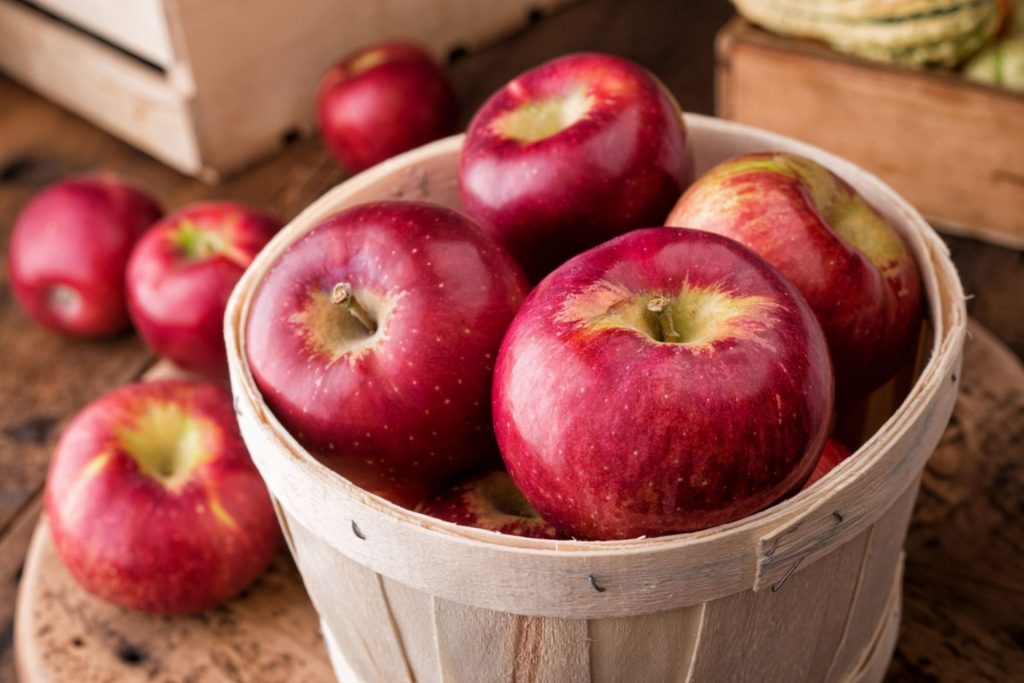
In this article, we’ll delve into the nutritional profile of apples, weigh the pros and cons, and much more to help you make an educated decision. So, if you’re looking to enhance your Hermann tortoise’s diet safely, you’ve come to the right place.
Why Diet Matters for Hermann Tortoises?
The phrase “you are what you eat” doesn’t just apply to humans; it’s equally relevant for our shelled friends, the Hermann tortoises. A well-balanced diet is crucial for these tortoises, influencing not just their physical well-being but also their happiness and lifespan. Proper nutrition is the cornerstone of a healthy Hermann tortoise, impacting everything from shell health to energy levels.
Unfortunately, many Hermann tortoise owners unintentionally make diet-related mistakes that can have long-term consequences. Feeding your tortoise an inappropriate diet can lead to a host of health issues like metabolic bone disease, obesity, and digestive problems. That’s why understanding the dietary needs of your Hermann tortoise is not just an optional part of pet ownership—it’s a responsibility.
As we explore the topic of feeding apples to Hermann tortoises, it’s essential to keep in mind the broader context of their dietary needs. Our ultimate goal is to enrich our pets’ lives through a nutritious, varied diet while avoiding foods that could be harmful. By being informed, you’re taking an important step toward offering your Hermann tortoise a healthier, happier life.
The Controversy Around Feeding Apples to Hermann Tortoises
When it comes to the Hermann tortoise diet, few topics spark as much debate as the inclusion of fruits like apples. While some tortoise owners swear by the occasional apple slice as a treat, others caution against it, citing potential health risks. The debate often leaves Hermann tortoise parents puzzled and seeking a definitive answer to the question: “Can Hermann tortoises eat apples safely?“
The controversy primarily revolves around the sugar and acid content in apples. Fruits are naturally higher in sugar than the leafy greens and wild plants that Hermann tortoises are accustomed to eating. Excessive sugar can lead to digestive issues and even obesity, conditions you undoubtedly want to avoid for your shelled companion. Additionally, the acidic nature of apples has been pointed out as a potential concern, as it could disrupt the tortoise’s digestive system.
To complicate matters, anecdotal evidence from tortoise owners seems to contradict itself. Some claim their Hermann tortoises have been enjoying small apple portions with no apparent ill effects. Others have reported digestive troubles following fruit feedings, raising red flags about including apples in their diet. With conflicting viewpoints and a lack of definitive scientific studies on the subject, it’s no wonder that the apple debate remains a hot topic in Hermann tortoise dietary discussions.
The Nutritional Profile of Apples
If an apple a day keeps the doctor away for humans, could the same be said for Hermann tortoises? Before we can answer that question, it’s essential to break down what exactly is in this iconic fruit. Knowing the nutritional makeup of apples can help us determine whether they have a place in your Hermann tortoise’s diet.
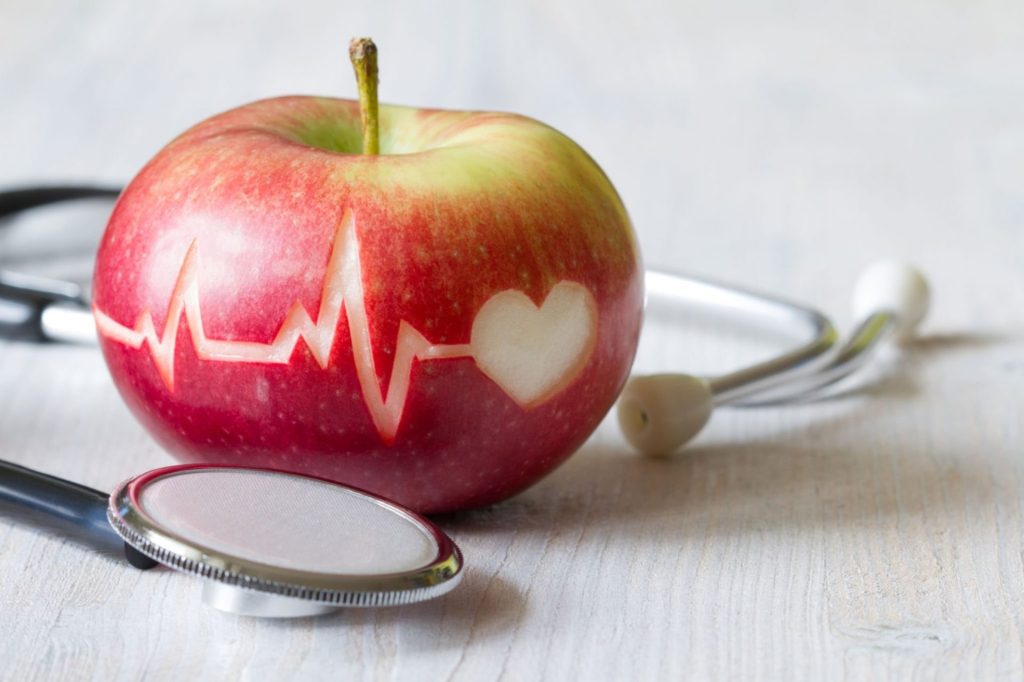
First off, apples are a rich source of dietary fiber, which is excellent for digestive health in many animals. They also contain various vitamins like Vitamin C and K, as well as minerals such as potassium. At a glance, these elements seem beneficial. However, the caveat lies in the sugar content. Apples are relatively high in natural sugars like fructose and glucose, which could be problematic for Hermann tortoises accustomed to low-sugar diets.
Another concern could be the acidity of apples. While not exceedingly acidic, apples do contain malic acid, which contributes to their tart flavor. For Hermann tortoises, whose natural diet is less acidic, this could potentially disrupt their digestive systems if consumed in large quantities.
In summary, apples are a nutritional powerhouse for humans, offering fiber, vitamins, and minerals. But their high sugar and mild acidity raise questions about their suitability for Hermann tortoises. As we weigh the pros and cons, understanding the nutritional profile of apples provides a foundational base for making an informed decision.
Pros and Cons of Feeding Apples to Hermann Tortoises
The topic of including apples in a Hermann tortoise’s diet is like a double-edged sword; it comes with its own set of advantages and disadvantages. With passionate arguments on both sides of the debate, let’s dive into the pros and cons to help you make a balanced decision.
Pros
· Nutritional Content: Apples are rich in fiber and contain an array of vitamins like Vitamin C and K, as well as essential minerals like potassium, which can complement a tortoise’s diet when given in moderation.
· Hydration: The high-water content in apples can provide some much-needed hydration, especially during hot summer months.
· Taste and Enrichment: Many Hermann tortoises find apples tasty, and offering a slice can add variety and mental stimulation to their daily routine.
Cons
· High Sugar Content: The natural sugars found in apples—namely fructose and glucose—can be a dietary drawback. Excessive sugar can disrupt a Hermann tortoise’s digestive system and contribute to obesity.
· Acidity: The malic acid in apples might be too much for a Hermann tortoise’s stomach to handle in large quantities, potentially leading to digestive issues.
· Potential for Pesticides: If not thoroughly washed or better yet, bought organic, apples can carry pesticide residues that are harmful to Hermann tortoises.
Given these pros and cons, the key takeaway is moderation. If you decide to introduce apples into your Hermann tortoise’s diet, start with a small amount and closely monitor your pet for any signs of discomfort or health issues.
So, can Hermann tortoises eat apples? The answer isn’t a simple yes or no. But armed with this information, you’re better equipped to make a decision that prioritizes your Hermann tortoise’s health and well-being.
What Do Hermann Tortoises Usually Eat?
If you’re the proud parent of a Hermann tortoise, you already know that these creatures have a penchant for munching on leafy greens. But what else makes up the natural diet of a Hermann tortoise? Understanding their usual dietary habits, both in the wild and in captivity, is crucial for any responsible owner looking to provide optimal care.
Here’s a more detailed look at what they usually eat:
Wild Plants
· Dandelions:

Rich in fiber and nutrients, dandelions are a favorite among Hermann tortoises.
· Clover:
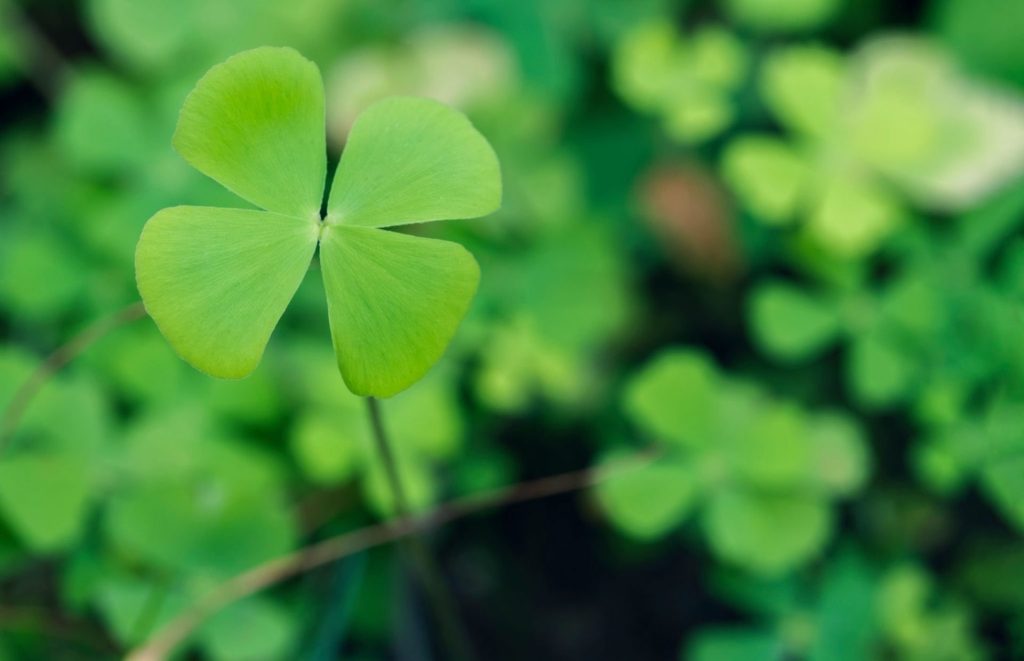
Another high-fiber choice, clover also adds some variety to their diet.
· Hibiscus:
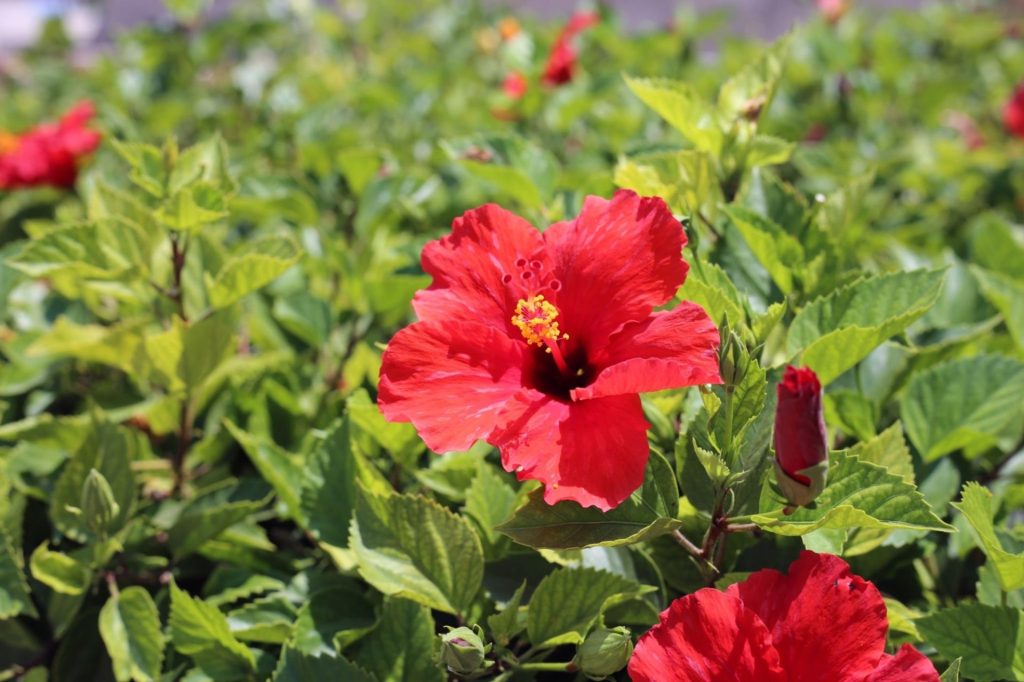
The flowers and leaves are both safe and beneficial for Hermann tortoises.
Leafy Greens
· Kale:
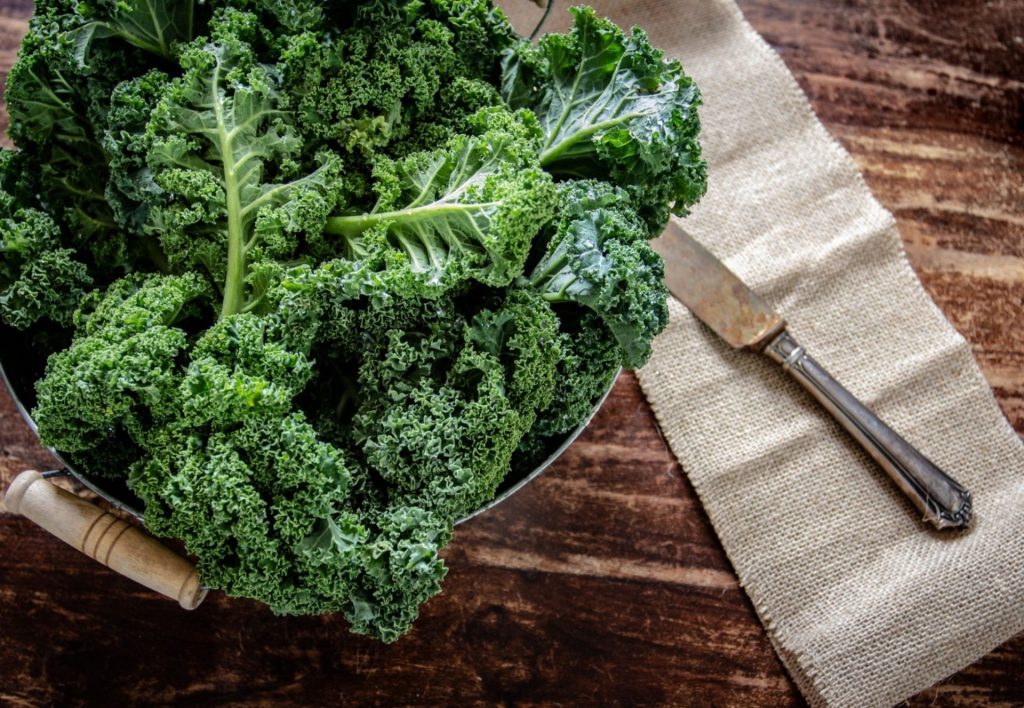
Packed with vitamins but should be given in moderation due to its high oxalate content.
· Collard Greens:
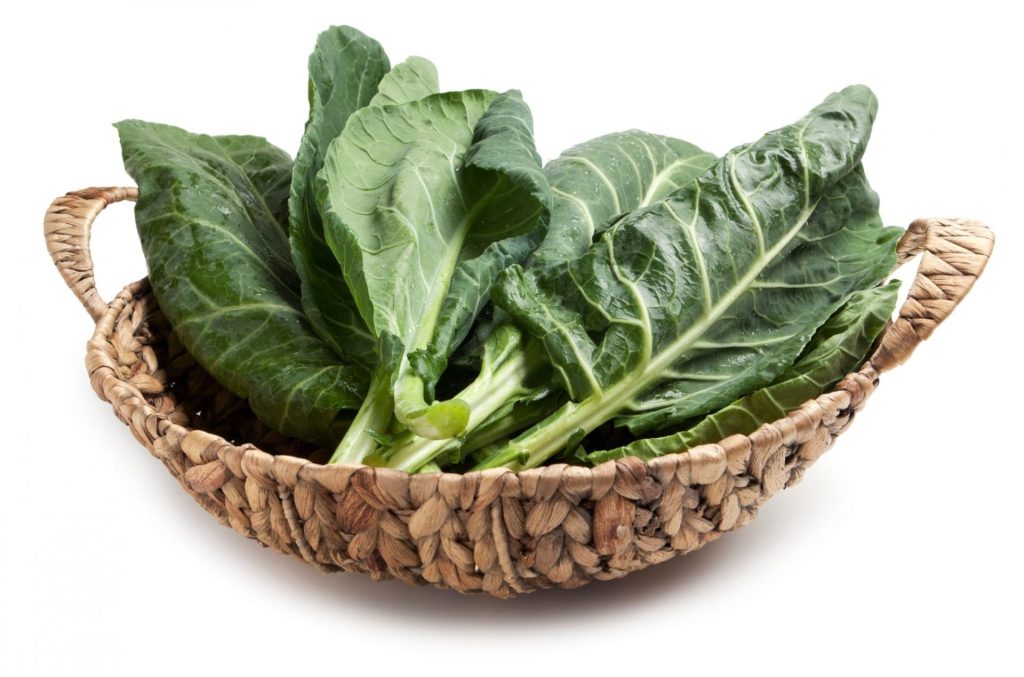
These are calcium-rich and provide essential nutrients.
· Romaine Lettuce:
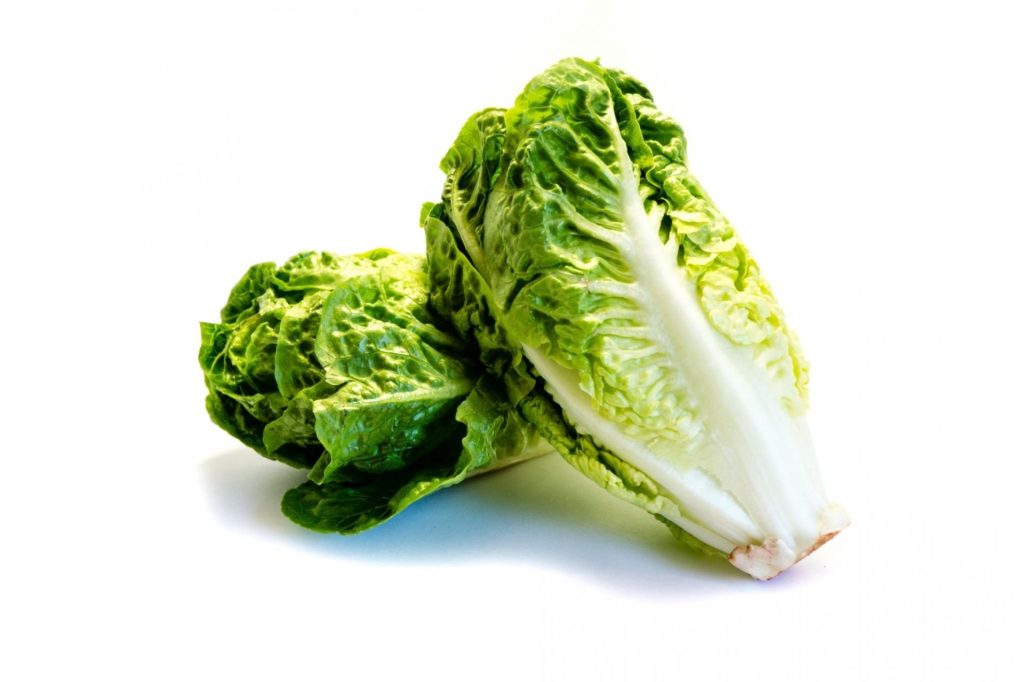
A good hydrating option but should be mixed with other greens for nutritional balance.
Vegetables
· Bell Peppers:
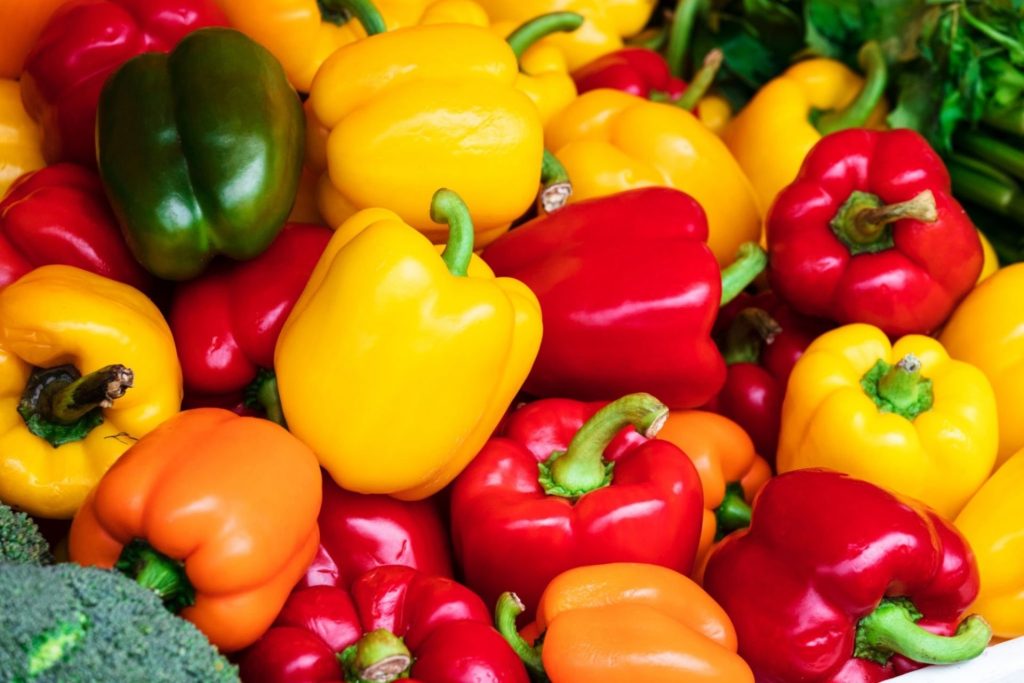
These can add some color and variety to their diet.
· Zucchini:
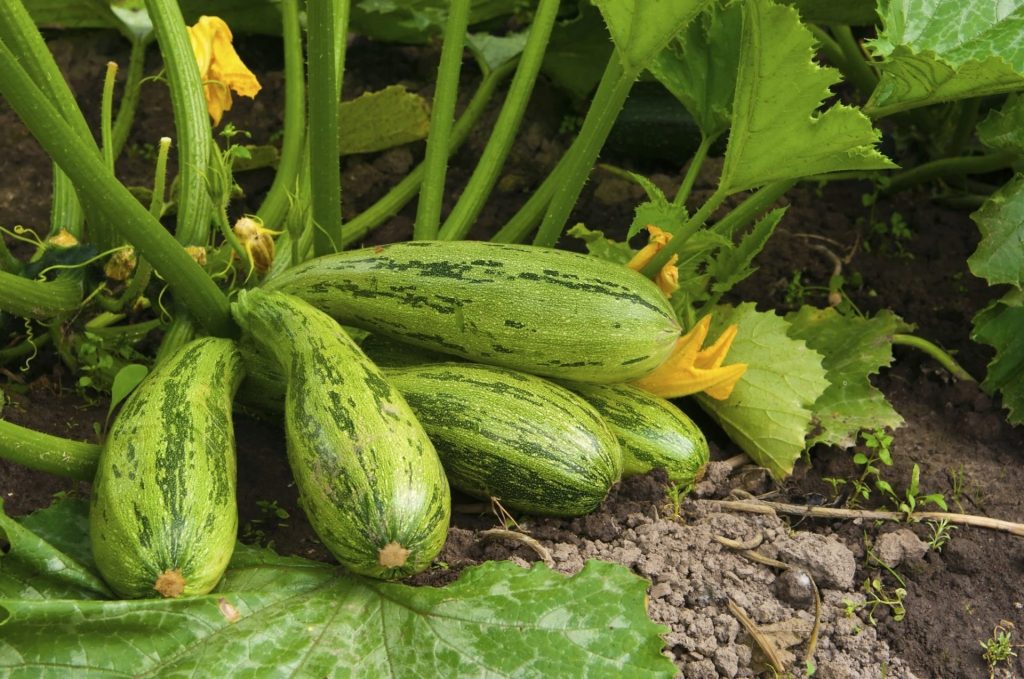
Low in calories and a good source of hydration.
· Carrots:
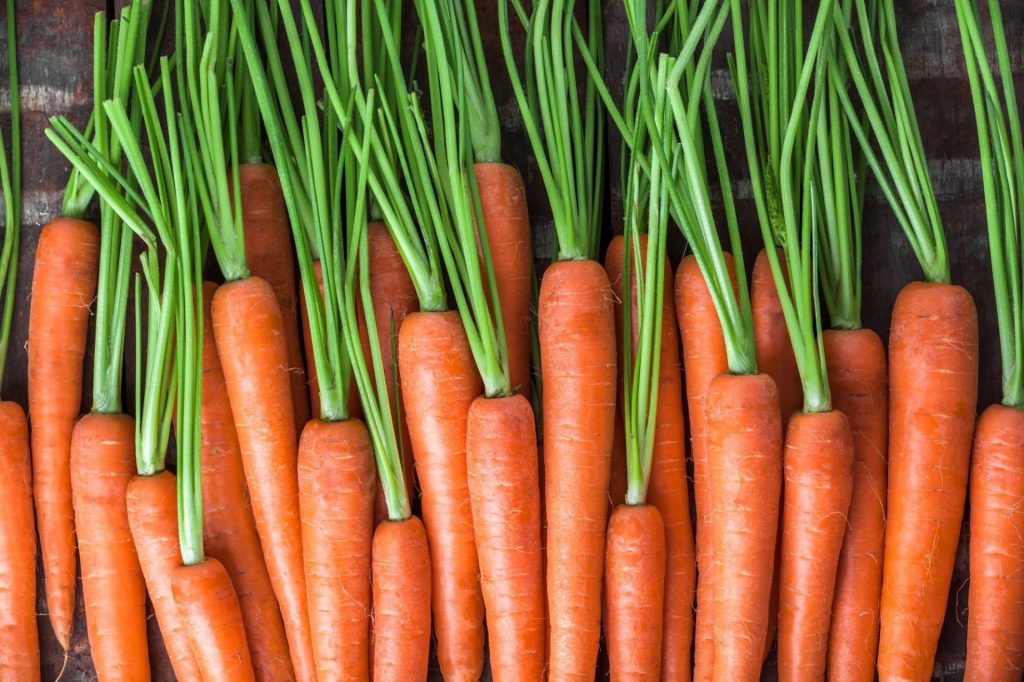
Good in small amounts but should be given sparingly due to high sugar content.
Fruits
· Berries:
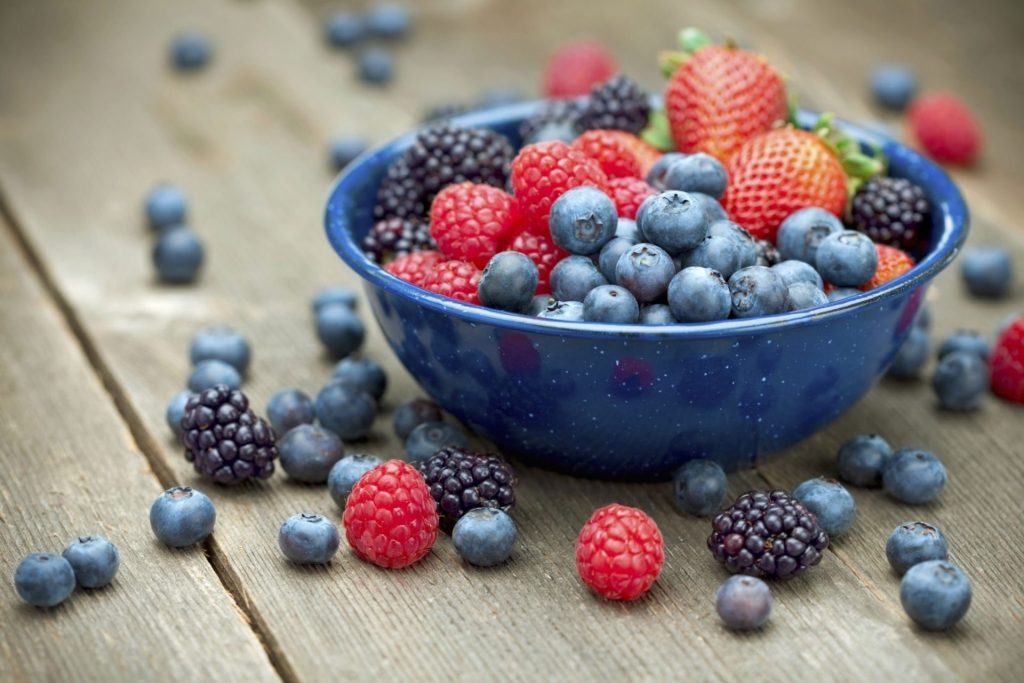
Strawberries, blueberries, and raspberries can be occasional treats.
· Melons:
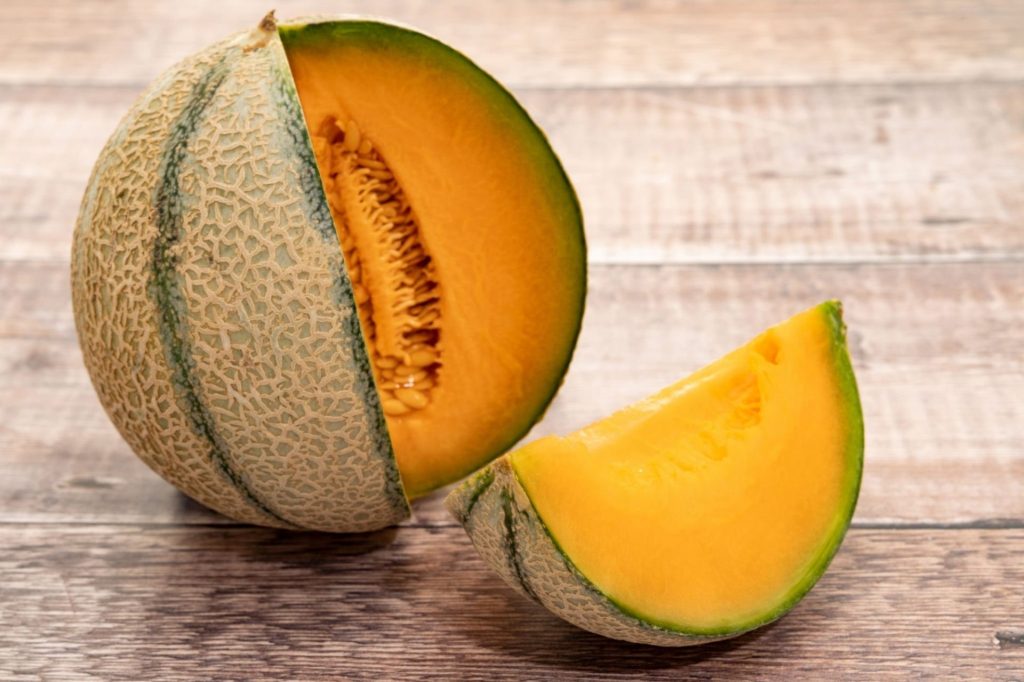
High in water content, these can be hydrating but should be given sparingly due to sugar content.
· Mango:
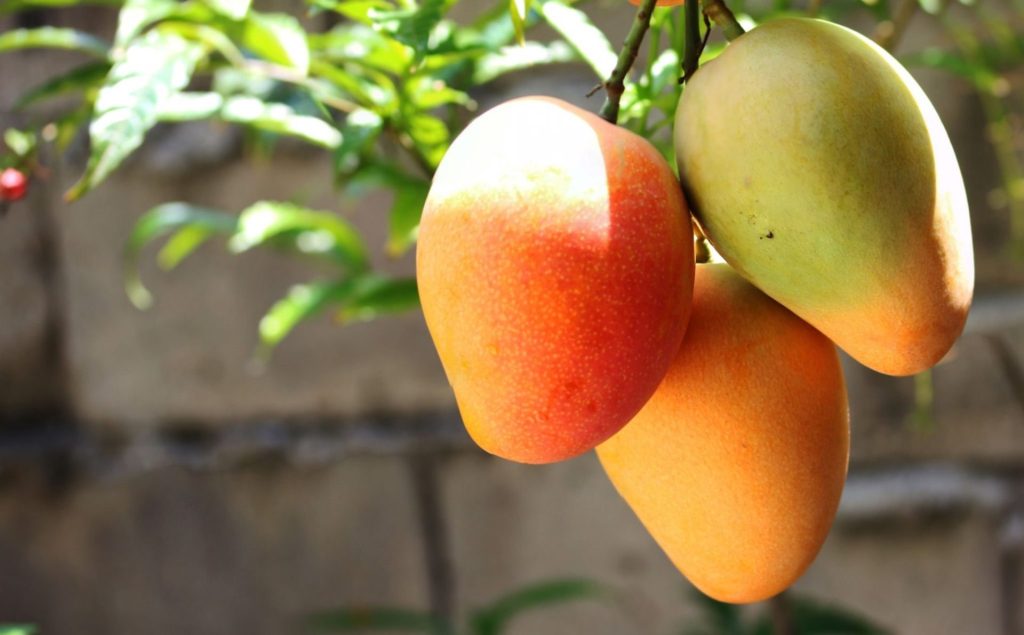
Delicious and nutritious but should be given in moderation due to sugar content.
Commercially prepared tortoise food can also be a good supplement but should not replace fresh, natural foods entirely.
Supplements
· Cuttlebone:
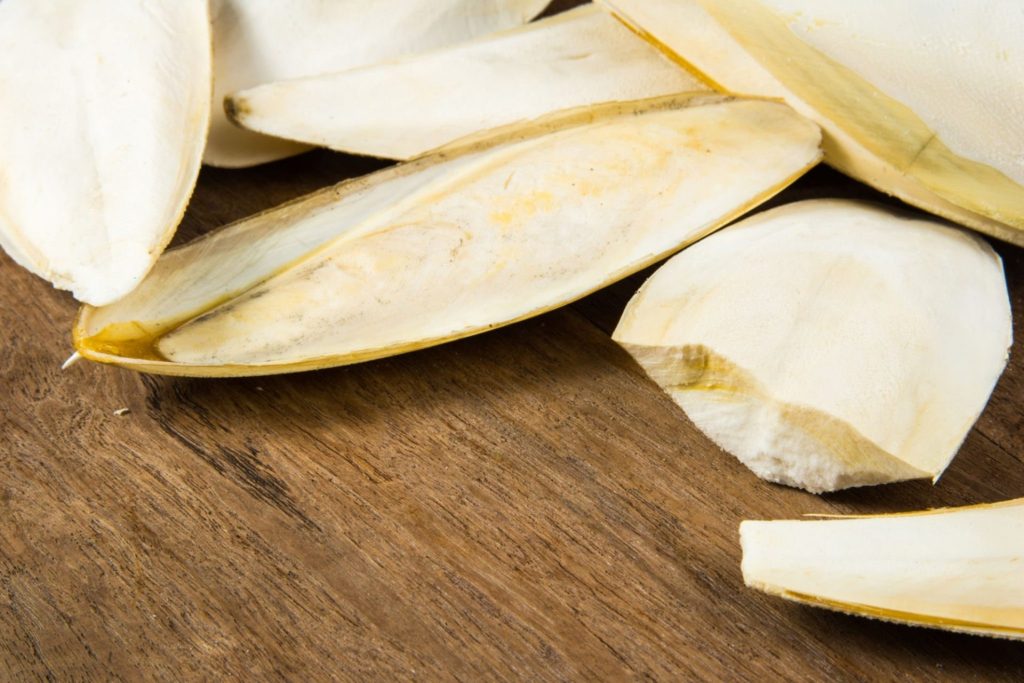
A great source of calcium, critical for shell development and overall health.
· Calcium Powder: Can be sprinkled over food to ensure they are getting enough calcium.
Commercial Foods
Specially formulated tortoise pellets can supplement a natural diet but should not be the primary food source.
Each of these food items comes with its own set of nutritional benefits and potential drawbacks, so a balanced approach is key. With this broader understanding of what Hermann tortoises generally eat, we can more accurately assess the suitability of introducing apples into their diet.
FAQ about Hermann Tortoises and Their Diet
When it comes to Hermann tortoises and apples, you’re likely to have some burning questions. We’re rounding up some of the most frequently asked questions about this topic to help you make well-informed decisions for your shelled friend.
1. Is It Safe for Hermann Tortoises to Eat Apple Seeds?
No, apple seeds contain a substance called amygdalin, which can release cyanide when digested. Always remove the seeds before offering apple slices to your Hermann tortoise.
2. How Often Can I Feed Apples to My Hermann Tortoise?
Due to their high sugar content, apples should only be an occasional treat. Experts generally recommend offering apples no more than once or twice a month and in small quantities.
3. Should I Peel the Apple Before Feeding It to My Tortoise?
While apple skin isn’t harmful and contains fiber, it can sometimes contain pesticides. If you choose to feed the skin, make sure the apple is organic and thoroughly washed.
4. Are There Specific Apple Varieties That Are Better for Hermann Tortoises?
Low-acid, sweeter apple varieties like Fuji or Gala may be more tolerable for Hermann tortoises. However, the key concern remains the sugar content, so any apple variety should be given sparingly.
5. Can Apples Replace Leafy Greens in a Hermann Tortoise’s Diet?
No, apples should not replace the staple foods like leafy greens and vegetables. They should only act as an occasional treat to add variety and enrichment.
We hope these FAQs have answered your queries about feeding apples to Hermann tortoises. Always remember that when in doubt, it’s best to consult a qualified veterinarian to address any specific concerns you may have about your pet’s diet.
Conclusion
So, can Hermann tortoises eat apples? We’ve journeyed through the pros and cons, expert opinions, and even alternative food options to give you a well-rounded answer: It’s complicated. While apples aren’t outright harmful, their high sugar content and mild acidity make them a topic of debate among Hermann tortoise enthusiasts. If you decide to offer apples, moderation is key. And as always, when introducing new foods into your pet’s diet, closely monitor for any changes in behavior or digestion.
Choosing the right diet for your Hermann tortoise doesn’t have to be a perplexing maze. Armed with knowledge and backed by expert advice, you can navigate the nutritional needs of your shelled companion with confidence. Remember, a well-fed Hermann tortoise is not just a healthy one but also a happy one. After all, our ultimate goal as pet owners is to ensure the well-being and happiness of our beloved animals.
Thank you for joining us on this informative exploration. We hope this post has shed some light on the apple controversy and helped you make a more informed decision. If you have further questions, don’t hesitate to consult with a qualified veterinarian. Your tortoise’s health is always worth the extra effort!
